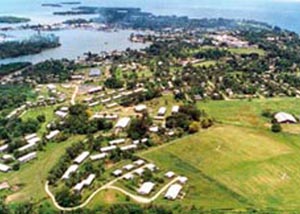
Kevin Pamba
MADANG: After 43 years of university education, 36 years of independence and a seemingly unassailable fixation with foreign researchers and consultants, a homegrown doctoral programme has not been offered at the national universities in Papua New Guinea.
This is for a country that many a visiting scholar considers as among the last untapped gold mine for scholarly inquiry and research. There is so much to be studied and written about here.
The reasons for the lack of a doctoral programme at PNG’s universities can be many. The obvious are lack of capacity and a disingenuous government support for higher degree study and research over the years.
This is punctuated by the ills and challenges associated with being a Third World country.
Some therefore could argue that PNG has been under the spell of what is regarded in various quarters of international scholarship as “epistemological imperialism” that has proselytised much of the developing world.
In the midst of a situation that appears unassailable, the Madang-headquartered Divine Word University (DWU) has challenged itself to “take the bull by its horn”. It is offering a permanent doctoral programme this year.
The president of DWU, Fr Jan Czuba, said this had come about after careful preparation and piloting over the past several years in line with the university’s second decade strategic plan that required the strengthening of research and higher degree scholarship.
The new doctoral programme began two weeks ago with the enrolment of 13 professionals from a range of fields including arts and humanities, education, health sciences, business management and information and communication technology (ICT).
Czuba said the step the university took was largely in response to the Vision 2050 that the government launched in 2009.It is in view of the fact that there are not many Papua New Guinean doctoral degree holders.
The few people that have PhDs and professional doctorates have attained them from universities in mostly the western world, often through scholarships provided by the host governments.
The new DWU doctoral programme began on Monday, March 7, with a two-week induction led by the director of postgraduate studies, Dr Maretta Kula-Semos, and a team of facilitators, all of whom have PhDs.
The programme came a day after DWU’s two pioneer PhD students, Bernadette Aihi and Paul Pasingan, graduated at the 29th annual graduation.
Czuba said Dr Aihi and Dr Pasingan were part of a pilot doctoral programme that the university used to gauge the possibility of offering a permanent one.
He said DWU was very pleased with the graduation of Aihi and Pasingan, who attained their PhDs in education. In keeping with international practice, the doctoral theses of Aihi and Pasingan were sent to “blind examiners” in overseas universities who marked and assessed them.
Czuba said their graduation pair pivotal as it demonstrated to the university that a home-grown PhD programme is possible.
“Since 2006, DWU was preparing for a PhD programme. At this time we had very limited number of students doing PhD. And we are very happy to see two students graduate this year,” he said.
Czuba said DWU was fully aware of the international requirements and benchmarks that any university needed to meet in a doctoral programme.
Before the PhD programme, he said, DWU had been teaching and encouraging research in undergraduate programmes and in its Masters programmes thus far.
A PhD or doctorate programme was very challenging to any university, whether in a developing or a developed country, he said.
He said this is because any university that offers doctoral studies must have:
* qualified academic staff to provide supervision to doctorate students;
* teaching and learning resources and the electronic databases for study and literature review; and
* well-established information and communication technology (ICT) systems to assist students to do research and analyse data.
DWU had felt that with 25 PhD holders in various academic disciplines on its staff and availability of improved infrastructure, online databases and ICT at its disposal, it was time to step out and meet the challenge. - Divine Word University/Pacific Media Watch



